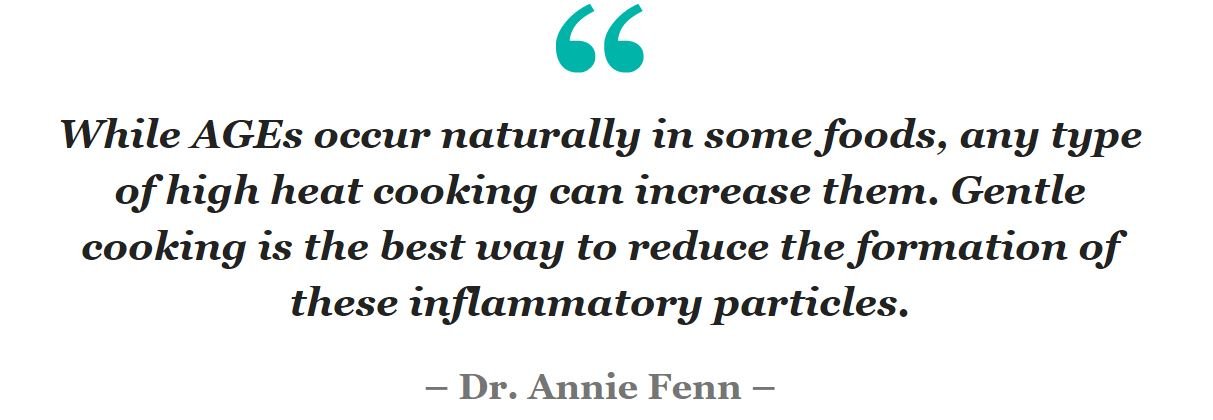I had the pleasure of taking a cooking class recently with Dr. Annie Fenn, the founder of the Brain Health Kitchen. I expected to prepare great food, but I walked away with an added bonus: advice on cooking techniques to help avoid AGEs (advanced glycation products in foods). These inflammatory substances are formed when foods are exposed to high temperatures in the presence of sugar, such as chicken slathered in sauce and then grilled at high heat. AGEs have been linked to Alzheimer's disease, metabolic disorders, diabetes and heart disease.
I spoke with Annie and got these tips for healthier cooking:
Q: You use the phrase "gentle cooking." What do you mean by that?
“The key idea is low and slow. Cook foods slowly, at a low temperature instead of using high heat.”
Q: What are examples of gentle cooking?
“My favorites are brasing, steaming, poaching, cold smoking, and pressure cooking. You can also roast foods in parchment paper.”
Q: What about stir-frying?
“Stir-frying is fine if you remember the low and slow principle. Warm the pan first, and then add a little olive oil. Olive oil is filled with nutrients and holds up well at lower temperatures. When the oil starts to shimmer, add your food and keep a close eye on it. A little carmelization is fine but avoid charred or blackened food.”
Q: Does marinating meat help reduce AGEs?
“Marinating meat is an excellent way to reduce AGEs. The marination process makes the meat more tender and can decrease AGE formation by 50%. A marinade can be as simple as citrus juice or yogurt and some spices. Marinate for about an hour and then cook.”
Q: Is grilling taboo?
“It is fine to enjoy grilled foods, but choose those foods carefully. Vegetables and fruits are naturally low in AGEs, and you can grill them until brown and crispy and still end up with a low-AGE meal. If you grill meat, choose leaner, thinner cuts and trim all visible fat before cooking."



